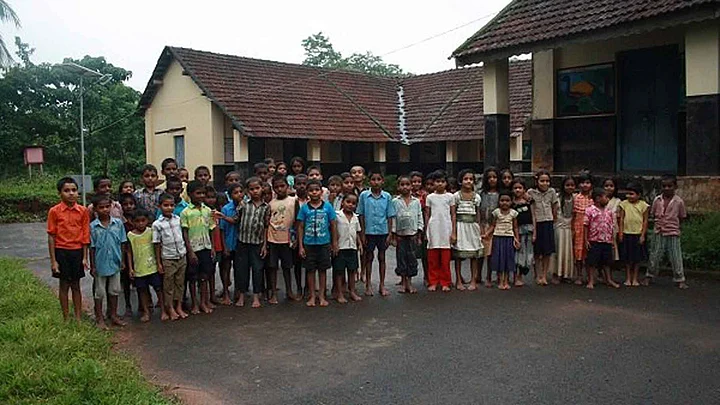The Karnataka education department has “permitted” schools to purchase a book that extols the personal achievements of Chief Minister Siddaramaiah as well as those of his government.
A circular issued by the Commission of Public Instruction to all schools and signed by the Director for Primary Education has “permitted” schools to purchase copies of a book titled Itta guri, ditta hejje (meaning “Determined steps towards set goals”) which talks about Siddaramaiah’s political life, popular schemes and achievements.
The circular, dated 28 March, says that the publisher of the book, Kannada Sahitya Vedike, had written to the government on 2 January urging it to direct all government schools to purchase copies of the book for the library.
In accordance with that, the circular notes, the government had “permitted” all government and aided primary and high schools to purchase the book.
The language of the circular does not say that it is mandatory for schools to purchase the book.
Speaking on condition of anonymity, a school teacher in Ramnagara district told The News Minute that such circulars informing schools about books were often sent.
Such circulars are sent, but it is not compulsory to buy the book. But, generally, (when it comes to influential people) higher officers at the block and cluster level exert indirect pressure on schools to buy such books. But in this case, we have not been told anything so far and our school has not purchased the book.A School Teacher
Sources said that several schools in Bengaluru too have not purchased the book. It has been about a month since schools reopened for the academic year and it remains to be seen whether they will buy it.
The Ramnagara school teacher also said that a couple of years ago, schools had been given Rs 5,000 to purchase library books along with a list of approved books. But schools do have discretion over which titles they can purchase for the library.
Activist Renni D’Souza says that School Development Monitoring Committees (SDMCs, comprising largely of parents) in Karnataka were quite strong and that they monitored the expenditure of schools. Hence, they could keep tabs on goings on at the school.
(At The Quint, we question everything. Play an active role in shaping our journalism by becoming a member today.)
